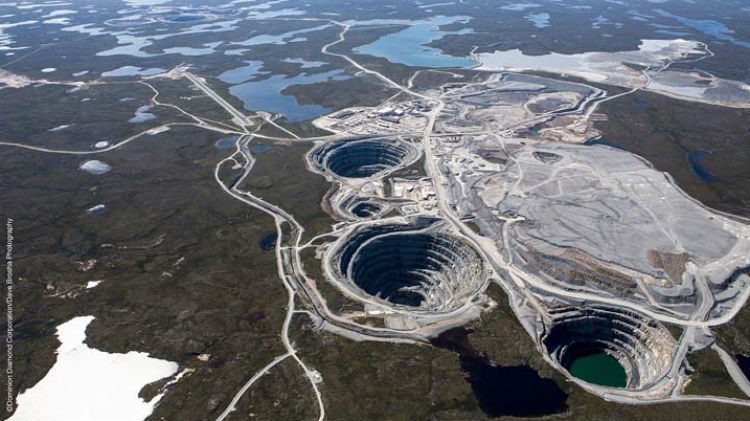Mining executives are calling on the GNWT to lessen regulatory oversight in the territory as opposed to increasing it.
A recent report from Natural Resources Canada suggests that mineral exploration spending in the NWT will drop by 54% in 2015.
That news, combined with the fact that some of the territory’s mines are slated to close in the next five years, has some experts concerned about the NWT’s economic outlook going forward.
“Mines have a limited life,” said David Connelly, owner of local consulting firm Ile Royale and representative for TerraX Minerals.
“The average life of the remaining mines let’s say is 10 years and the shortest time to put new mines into production is 20 years so there’s clearly a big gap.
“If we go back 10 years ago when the gold mine shut and before we were fortunate enough to have the diamond mines open, people were losing their houses because they couldn’t pay their mortgages, businesses were closing and you couldn’t get a U-Haul because people were leaving town that quickly.
“It happened in recent history and we seem to have forgotten.”
Read: GNWT Unveils New Proposed Fracking Regulations
Connelly says 50% of the territory’s gross domestic product (GDP) comes either directly or indirectly from the mines. The sector also employs roughly half of the NWT’s population in some form or another.
But outside investment is few and far between these days and according to one expert, that can be chalked up to regulatory uncertainty.
“The Northwest Territories has a track record of finding and developing exceptional quality mineral deposits,” said Don Bubar, president and CEO of Avalon Rare Metals. “But what’s happening now is there’s a disadvantage in terms of regulatory uncertainty.
“Companies look for jurisdictions where there is certainty about the regulatory process and the Northwest Territories suffers from probably more uncertainty and less predictability on the regulatory process than many other jurisdictions in Canada and around the world.
Bubar believes recent decisions – including Husky’s application to drill for silica sand near Yellowknife being sent to an environmental assessment – are turning outsider investors away from the territory.
“Early stage projects like that should never be referred for an environmental assessment. There are no significant impacts on the environment at that early stage.
“The issue is that that sounds a profoundly negative message to the investment community outside of the North that ‘the North is not welcoming and that it’s not open for business.’
“We rely on long-term exploration spending to generate the mines of tomorrow and it’s been declining for some time in the Northwest Territories.
At the time, the Wek’èezhìi Land and Water Board, which received Husky’s proposal, said substantial concern existed due to the “potential for impacts and the cultural, traditional, spiritual, and recreational value of the Whitebeach Point area in and of itself.”
Is devolution helping?
Connelly and Bubar both told Moose FM that a more thorough review of the territory’s role as a regulator needs to be conducted.
“[Devolution] was touted as something that was going to provide a faster regulatory environment and a more certain regulatory environment but one year in, that regulatory environment is making more unpredictable decisions and caught up in court cases.
“From an investor’s point of view, post-devolution regulation is less certain and less supportive of a stable economy than before.
“We need to call upon leadership to put things in place now to address why things are worse here than they are in the Yukon or in Nunavut.”
Bubar added: “An important component of the regulatory regime still resides with the federal government under the Mackenzie Valley Resource Management Act which regulates land use permits and water licenses.
“By not having that, the GNWT doesn’t have full control of its destiny over resource on natural resource development and I would submit that that’s an issue that needs to be addressed going forward.”
Read: Mining Employees Say Cost Of Living Puts Them Off NWT
Read: The Northern Miner: Jay Pipe Could Add 11 Years To Ekati Mine Life




